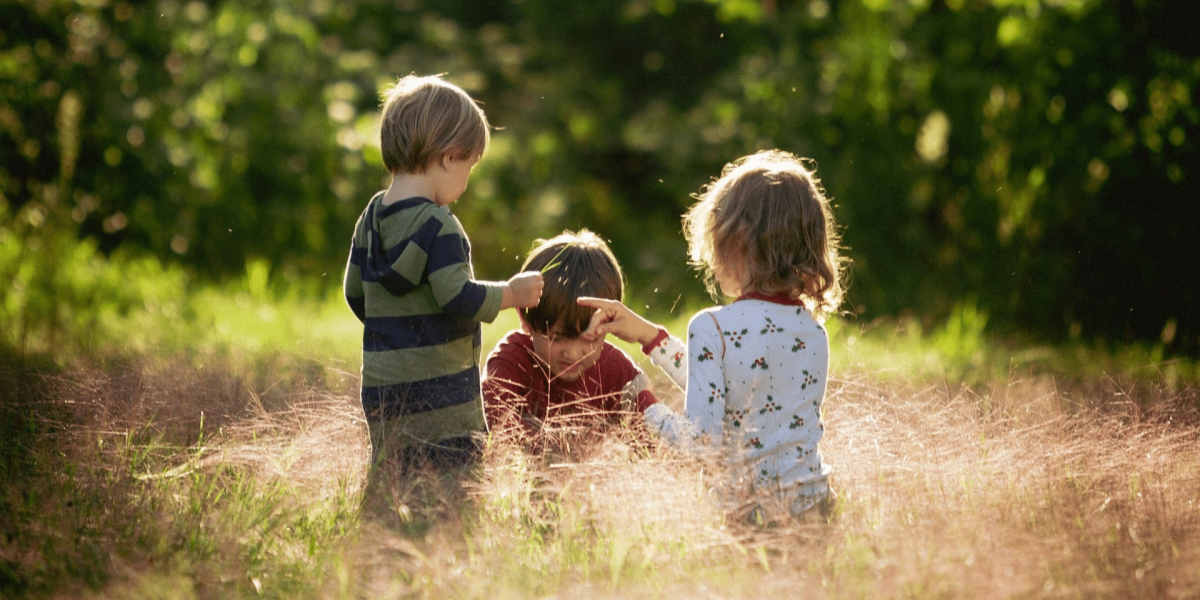In a world filled with screens, children are spending more time indoors, which often limits their chance for outdoor play. While technology offers educational benefits, too much screen time can harm a child’s physical, mental, and social development. Here, we’ll explore why balancing screen time with outdoor activities is crucial for kids, helping them thrive both physically and emotionally.
How Does Outdoor Play Benefit Physical Health?
Outdoor play offers vital physical health benefits for children, benefits that screen time simply can’t replace. When kids are outside, they’re naturally more active—they run, jump, climb, and explore. These activities help them build motor skills, coordination, and balance, all essential for healthy physical development. In contrast, spending too much time on screens encourages a sedentary lifestyle, which can lead to problems like poor posture, obesity, and reduced physical fitness.
Moreover, playing outdoors means kids are exposed to sunlight, a natural source of vitamin D, which is critical for bone health. Just a little time spent outdoors each day can help children get the movement and exercise they need, while also supporting their body’s development in a way that sitting in front of a screen can’t. Outdoor play isn’t just about exercise; it’s about fostering habits that support lifelong health.
Can Outdoor Play Improve Mental and Emotional Health?
Yes, time outside can be incredibly beneficial for a child’s mental and emotional well-being. Nature has a calming effect, and the sights, sounds, and smells of the outdoors engage a child’s senses, sparking curiosity and wonder. Outdoor play often encourages imaginative play, letting kids create their own games, explore freely, and solve problems, which helps boost creativity and independence.
Being in nature also offers an escape from the overstimulation of screens and digital content. Studies have shown that time outdoors reduces stress and anxiety, providing a sense of peace that screens can’t replicate. For children who may feel overwhelmed by the pressures of school or social media, playing outside offers a chance to recharge mentally. Whether they’re building forts, observing bugs, or simply exploring, outdoor play nurtures a positive outlook and reduces the mental fatigue that can come from too much screen time.
How Does Outdoor Play Promote Social Skills?
When children play outside, they naturally engage in social interactions that are vital to their development. Unlike structured indoor activities, outdoor play often encourages kids to interact with peers, leading to teamwork, cooperation, and negotiation. These moments teach kids essential social skills—how to share, take turns, and communicate effectively.
Playing in outdoor settings also fosters unstructured play, giving kids the freedom to start and stop games as they please, creating a natural environment for learning empathy and patience. These interactions lay the groundwork for building healthy relationships in the future. By learning to navigate social dynamics, children gain skills they’ll need for school, friendships, and eventually, their professional lives. Outdoor play isn’t just about exercise; it’s about helping kids grow into confident, socially adept individuals.
Balancing Screen Time with Outdoor Play
While technology has its role in modern life, finding a balance is key. Experts, like those from the American Academy of Pediatrics, suggest limiting screen time for kids to one or two hours per day, focusing on age-appropriate and high-quality content. Setting aside specific times or areas in the home as “screen-free zones” can encourage children to engage in other activities, including outdoor play.
Parents and caregivers can play an active role by organizing outings to parks, nature reserves, or just encouraging kids to explore their backyard. Making outdoor play a family activity can reinforce its importance and help children appreciate the world around them.
Building a Love for Nature
Encouraging kids to spend more time outdoors fosters a deep connection with nature. When children explore natural spaces, they develop respect and curiosity about the environment. These experiences can lead to a lifelong appreciation for the natural world and a commitment to environmental stewardship. Watching a butterfly, climbing a tree, or spotting a bird can be eye-opening moments that create lasting memories.
In conclusion, while screens offer valuable educational content, nothing replaces the mental, physical, and social benefits of outdoor play. By encouraging a balance between screen time and outdoor activities, parents can help their children develop holistically. Outdoor play promotes fitness, emotional resilience, social skills, and an appreciation for nature—qualities that benefit kids throughout their lives.








